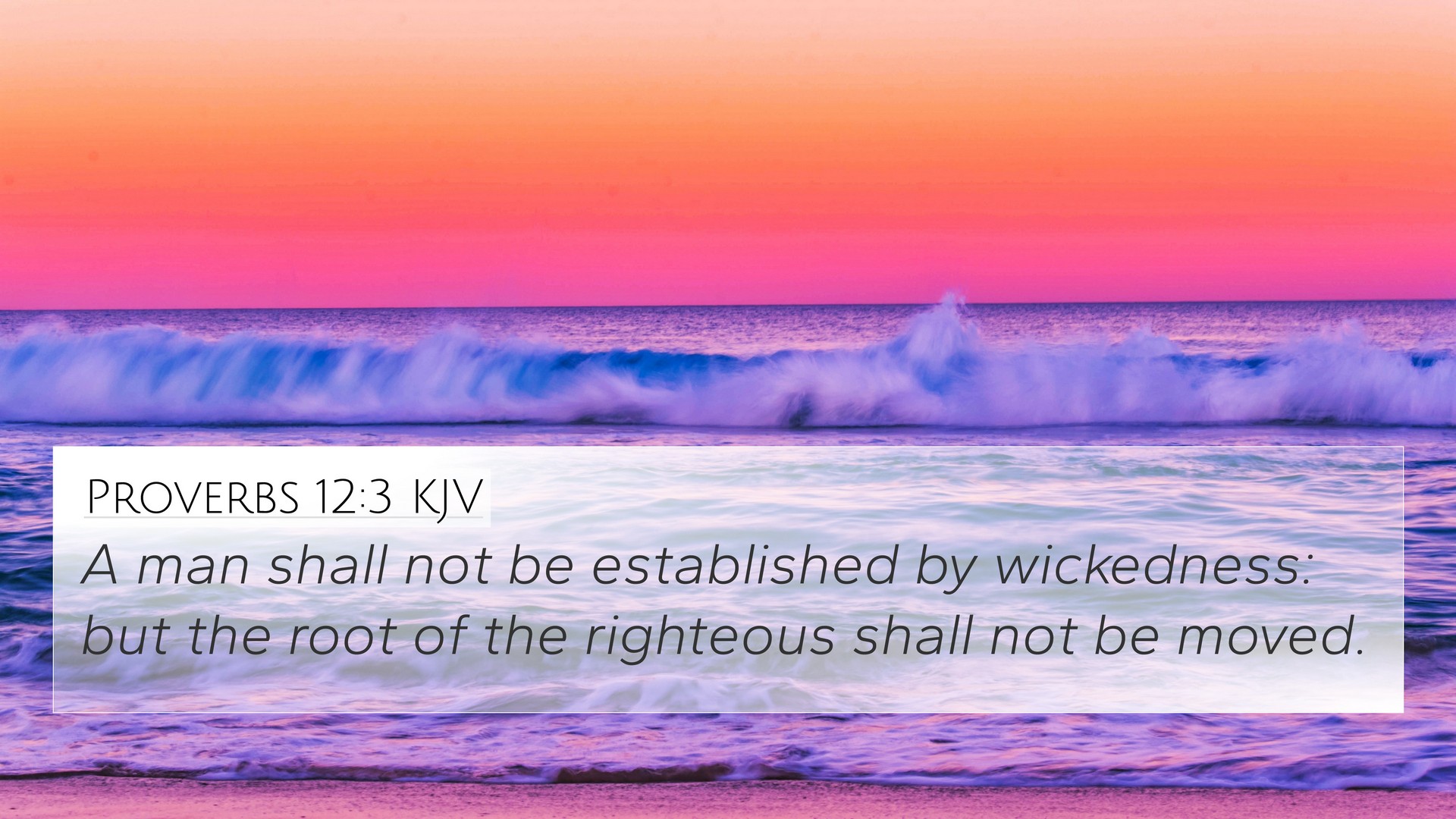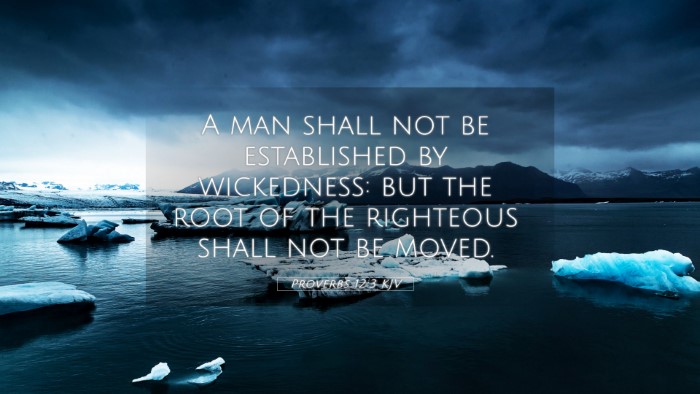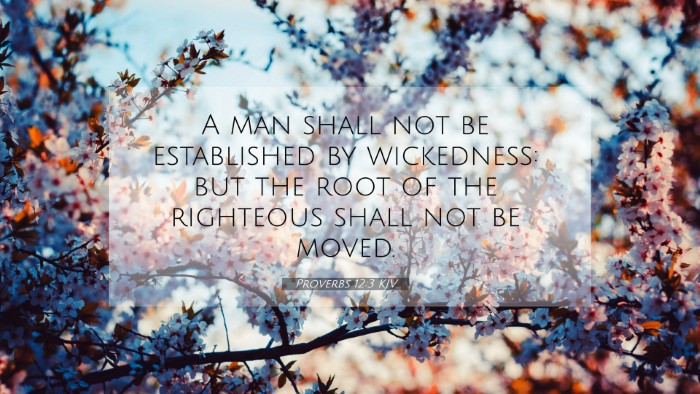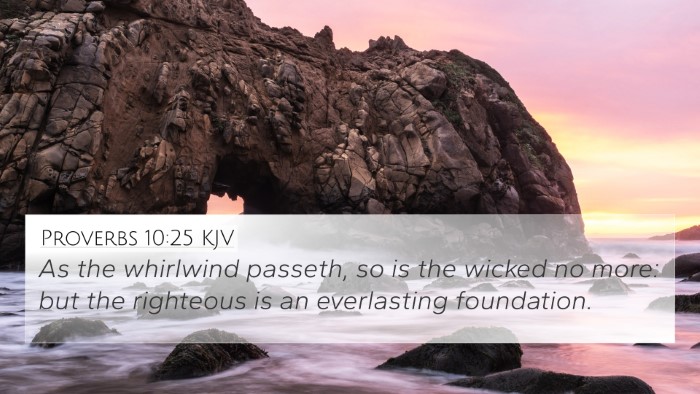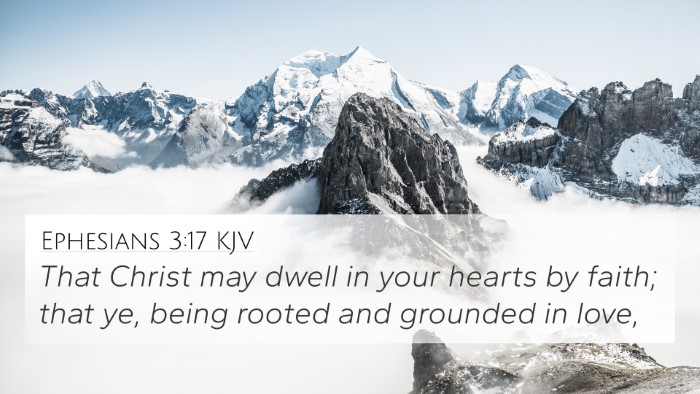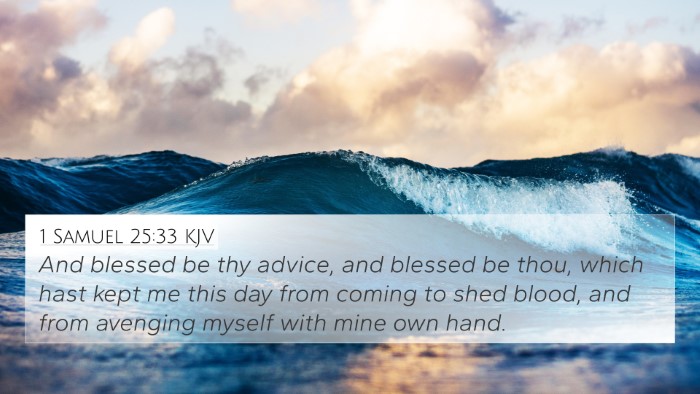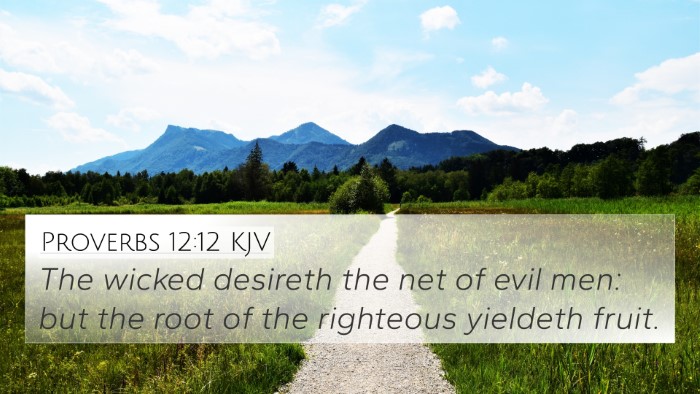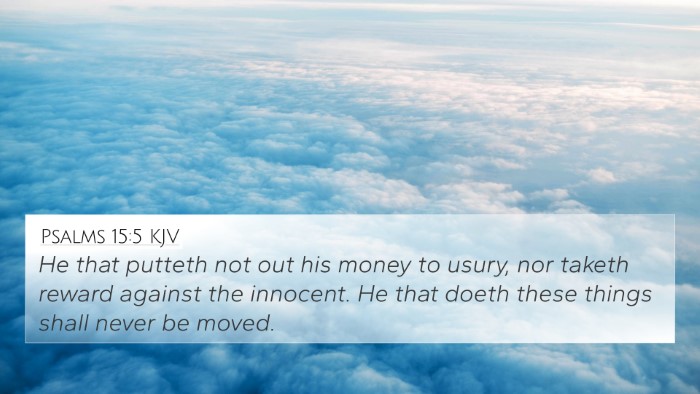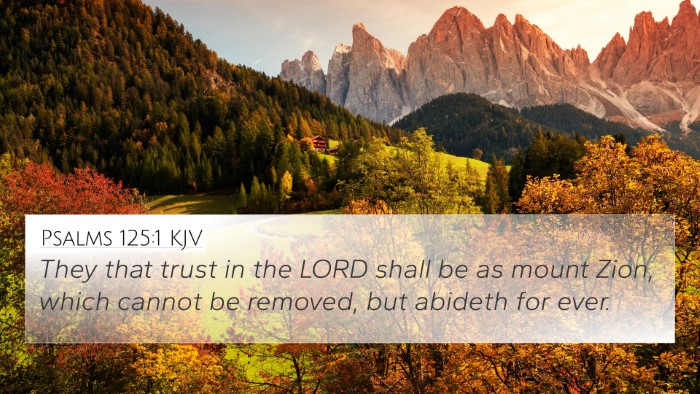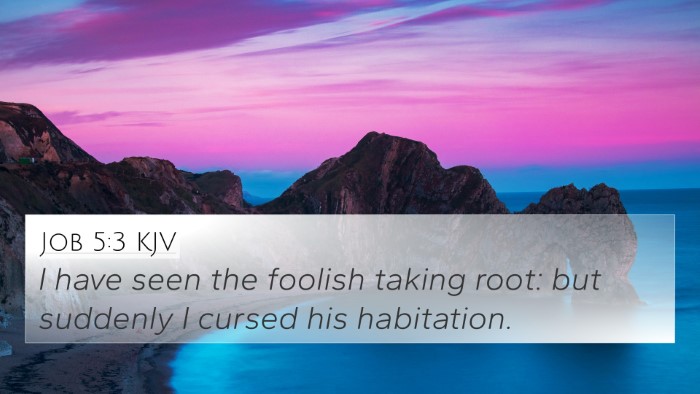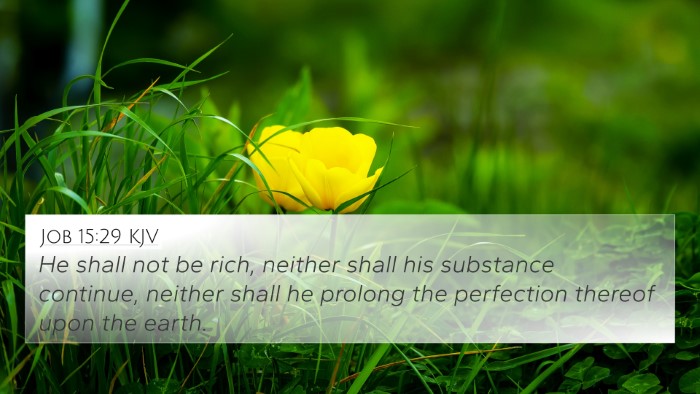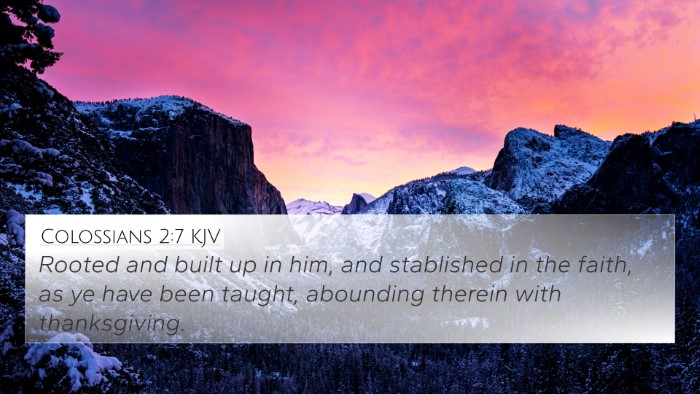Understanding Proverbs 12:3
Bible Verse: "A man shall not be established by wickedness: but the root of the righteous shall not be moved." (Proverbs 12:3)
Meaning and Interpretation
Proverbs 12:3 emphasizes the foundational principle that a person's life and stability are directly related to their moral conduct. The verse contrasts the fleeting and unstable nature of those who rely on wickedness with the enduring strength of the righteous.
Insights from Public Domain Commentaries
-
Matthew Henry: He underscores that wickedness may provide immediate gain or temporal success, but ultimately it cannot establish a lasting legacy. The righteous, rooted in godliness, will face challenges yet remain steadfast.
-
Albert Barnes: Barnes remarks that the imagery of roots represents stability and nourishment. He connects the idea that the "root of the righteous" refers to their deep, abiding connection with God's principles, which keeps them grounded despite life's storms.
-
Adam Clarke: Clarke emphasizes the nature of righteousness, noting that it is a source of strength and resilience. He observes that those who act unjustly may appear to prosper, but such prosperity is temporary and ultimately leads to downfall.
Cross-References to Proverbs 12:3
This verse connects with several other scriptures, demonstrating a cohesive biblical theme regarding righteousness and moral integrity:
- Psalms 1:3: "And he shall be like a tree planted by the rivers of water, that brings forth his fruit in his season; his leaf also shall not wither; and whatsoever he does shall prosper."
- Jeremiah 17:7-8: "Blessed is the man that trusteth in the Lord, and whose hope the Lord is. For he shall be as a tree planted by the waters, and that spreads out her roots by the river..."
- Proverbs 10:30: "The righteous shall never be removed: but the wicked shall not inhabit the earth."
- Isaiah 57:15: "For thus saith the high and lofty One that inhabiteth eternity, whose name is Holy; I dwell in the high and holy place, with him also that is of a contrite and humble spirit..."
- Matthew 7:24-25: "Therefore whosoever heareth these sayings of mine, and doeth them, I will liken him unto a wise man, which built his house upon a rock: And the rain descended, and the floods came, and the winds blew, and beat upon that house; and it fell not: for it was founded upon a rock."
- Galatians 6:7: "Be not deceived; God is not mocked: for whatsoever a man soweth, that shall he also reap."
- Proverbs 11:3: "The integrity of the upright shall guide them: but the perverseness of transgressors shall destroy them."
Thematic Connections in Scripture
These verses emphasize several profound themes present throughout scripture, including:
- The stability and prosperity of the righteous
- The temporary success of the wicked
- The deep roots of faith as a source of strength
- The consequences of one's moral choices
Practical Applications and Reflections
In studying Proverbs 12:3 and its available cross-references, we can derive crucial lessons applicable to our lives:
- Integrity is Essential: Cultivating integrity shield us from the instabilities of the world.
- Building on a Solid Foundation: Righteous behavior leads to a life that endures trials and tribulations.
- Reflection on Moral Choices: Evaluating our paths according to divine principles can guide us away from destructive practices.
Conclusion
In an age where moral ambiguity often prevails, Proverbs 12:3 reminds us that lasting establishment comes from righteousness, not wickedness. The continual cross-referencing of biblical texts enlightens our understanding, creating a richer tapestry of God's intentions for humanity.
